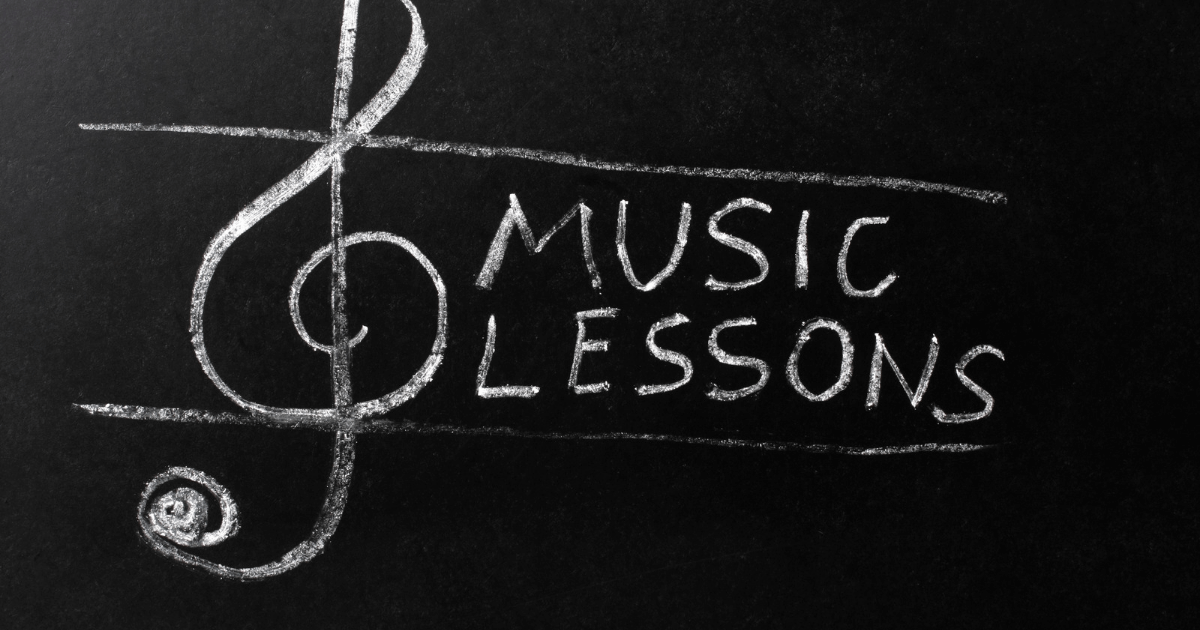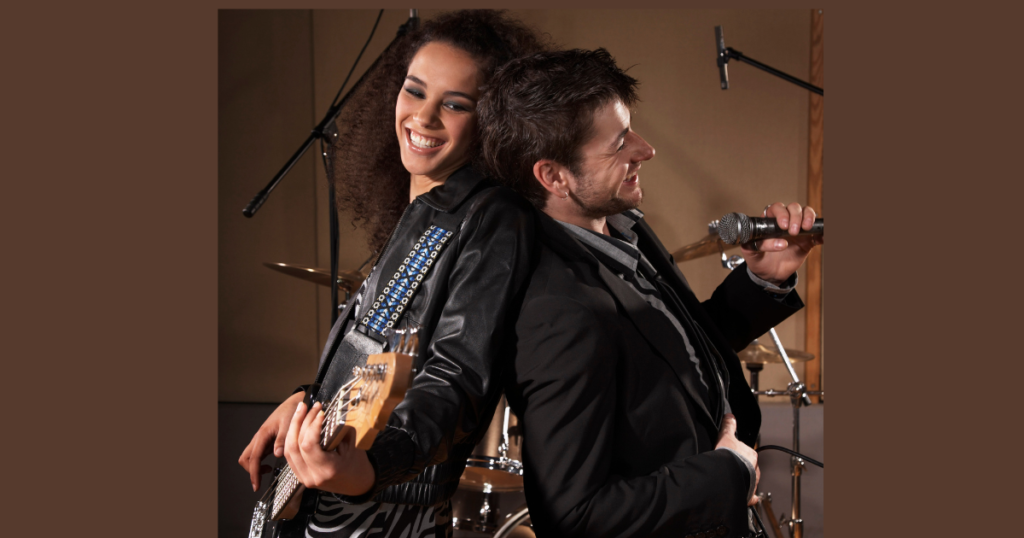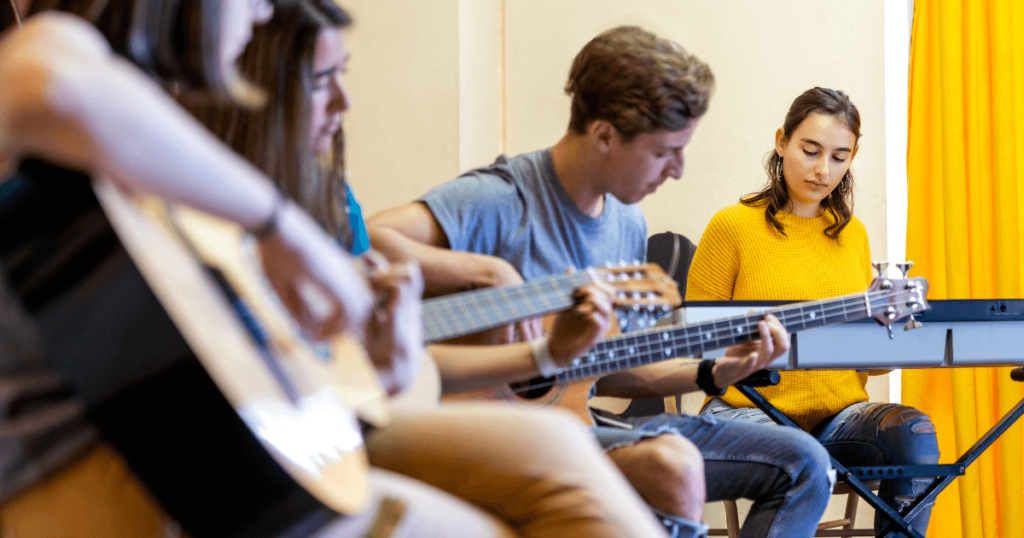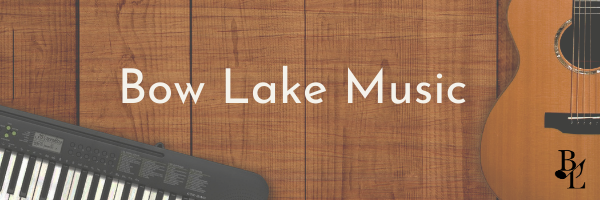What You Can Learn in Music Lessons: Are you someone who has always admired musicians and their ability to create beautiful melodies? Have you always wanted to learn to play a musical instrument or take your singing talent to the next level? If so, music lessons might be just what you need to unlock your musical potential.
In music lessons, you can learn a wide range of skills that will not only help you improve your musical abilities but also enhance your overall well-being. From learning the basics of music theory to developing techniques specific to your chosen instrument or vocal style, music lessons provide a structured and supportive environment for growth and improvement.
Whether you’re a beginner with no prior musical experience or an intermediate player looking to enhance your skills, music lessons can cater to your needs. With the guidance of experienced instructors, you’ll receive personalized attention and constructive feedback to help you progress at your own pace. So, if you’ve always had a passion for music, don’t let it go to waste. Take the leap, enroll in music lessons, and tap into your musical potential today.

Music Lessons – Definition
According to Wikipedia, Music lessons are a type of formal instruction in playing a musical instrument or singing. Typically, a student taking music lessons meets a music teacher for one-to-one training sessions ranging from 30 minutes to one hour in length over a period of weeks or years.
Benefits of learning music
Playing a musical instrument or singing is not only a hobby but also a form of self-expression that can bring joy and fulfillment to your life. Learning music has numerous benefits that extend beyond the realm of entertainment. Check out some of the main advantages of learning music:
- Development of discipline and perseverance. Regular practice and commitment are essential for progress, and these qualities can be applied to various aspects of life.
- improve cognitive abilities, including memory, attention, and problem-solving skills.
- Studies have shown that learning to play an instrument can enhance brain function and improve academic performance.
- Music also has a therapeutic effect, reducing stress and promoting relaxation.
- It can serve as a creative outlet and a means of emotional expression.
At Bowlake Select a Teacher and Start Learning Music Today
Different types of music lessons available
When it comes to music lessons, there is a wide variety of options to choose from. Whether you’re interested in classical piano, electric guitar, jazz saxophone, or singing, there is a teacher or school that specializes in your preferred genre or instrument. It’s important to consider your musical goals and preferences when selecting a music lesson.
Private lessons offer one-on-one instruction tailored to your specific needs and learning style. This personalized approach allows for individualized attention and feedback, ensuring that you make progress at your own pace. Group lessons, on the other hand, provide a collaborative and social environment where you can learn from and interact with other students who share similar interests.
Finding the right music teacher or school
Finding the right music teacher or school is crucial to your musical journey. A good teacher should not only have a solid understanding of music theory and technique but should also be able to inspire and motivate you. Look for someone who is passionate about teaching and has experience working with students at your level.
Word-of-mouth recommendations are often a reliable way to find a reputable music teacher or school. Ask friends, family, or fellow musicians for their suggestions. Online platforms and directories can also be helpful in finding qualified instructors in your area. Take the time to research and read reviews before making a decision.
At Bowlake Select a Teacher and Start Learning Music Today
What to expect in a music lesson
Music lessons typically follow a structured format that includes warm-up exercises, technique practice, repertoire study, and music theory instruction. The duration of a lesson can vary depending on your level and preferences, ranging from 30 minutes to an hour or more.
During a lesson, you can expect your teacher to provide guidance, demonstrate proper techniques, and offer constructive feedback. They will help you develop a solid foundation of skills and knowledge necessary for your musical growth. Be prepared to practice regularly outside of lessons to reinforce what you’ve learned.
Essential skills and techniques taught in music lessons

Music lessons cover a wide range of skills and techniques depending on your chosen instrument or vocal style. For beginners, the focus may be on learning the basics of music theory, including reading sheet music, understanding rhythm, and identifying key signatures.
As you progress, you will delve into more advanced concepts such as chord progressions, scales, improvisation, and music composition. Technique development is also a crucial aspect of music lessons. You’ll learn proper hand positioning, breath control, vocal projection, or fingering techniques specific to your instrument.
How music lessons can enhance cognitive abilities
Learning music has been shown to have a positive impact on cognitive abilities. Playing an instrument involves using both hemispheres of the brain, enhancing coordination, memory, and concentration. Musicians have been found to have increased neural connectivity, which can lead to improved problem-solving skills and creativity.
Children who learn music from an early age tend to perform better academically, as music education stimulates areas of the brain associated with language and reasoning. For adults, learning music can help maintain cognitive function and prevent age-related decline. It’s never too late to start learning music and reaping the cognitive benefits it offers.
At Bowlake Select a Teacher and Start Learning Music Today
Music exams and certifications
Music exams and certifications provide a means of measuring your progress and achievement in music. Many music examination boards offer graded exams that assess technical skills, music theory knowledge, and performance abilities. These exams provide a structured framework for learning and can serve as a motivation to practice and improve.
Certifications such as the Associated Board of the Royal Schools of Music (ABRSM) or the Trinity College London exams are recognized worldwide and can enhance your credibility as a musician. They can also open doors to opportunities such as scholarships, music competitions, and college admissions.
Resources and tools for practicing and improving musical skills

Practicing regularly is key to improving your musical skills. Fortunately, there are numerous resources and tools available to support your practice and enhance your learning experience. Online platforms, such as music tutorials, sheet music databases, and interactive practice apps, provide a wealth of resources at your fingertips.
Metronomes and tuners are essential tools for maintaining rhythm and pitch accuracy. Recording devices allow you to listen back to your performances and identify areas for improvement. Additionally, joining musical communities, attending workshops, and participating in ensemble groups can provide valuable opportunities for growth and collaboration.
At Bowlake Select a Teacher and Start Learning
Conclusion: Embracing the journey of musical growth
Enrolling in music lessons is an investment in your personal and musical growth. Whether you’re a beginner or an experienced musician, there is always something new to learn and explore. Music lessons provide a structured and supportive environment where you can develop essential skills, enhance cognitive abilities, and experience the joy of creating music.
So, if you’ve always had a passion for music, don’t let it go to waste. Take the leap, enroll in music lessons, and tap into your musical potential today. Embrace the journey of musical growth and discover the transformative power of music in your life.
Music Lessons – Frequently Asked Questions
What is the basic to learn music?
How to do a music lesson?
- Listen and Discuss. Provide examples of different types of music for students to listen to. …
- Playing for Others. Invite students who play a musical instrument to play for their classmates. …
- Visualize the Music. If you teach young learners, try using musical flashcards.
What is the basic to learn music?
How do you start learning music for beginners?
- Read the whole score.
- Listen to the whole piece.
- Play through the entire piece slowly.
- Divide the piece.
- Use various techniques for different passages.
- Put the whole piece together.
- Rinse and repeat.
- Find an audience to perform.
What is a music teacher called?
Music Lessons: An Investment in Yourself that Pays Off for Life Read More »




























